How Can Breast Cancer Patients Benefit From Shared Decision-Making?
How Can Breast Cancer Patients Benefit From Shared Decision-Making? from Patient Empowerment Network on Vimeo.
How can shared decision-making benefit breast cancer patients? Expert Dr. Bhuvaneswari Ramaswamy defines shared decision-making and discusses how the process may benefit patients.
Dr. Bhuvaneswari Ramaswamy is the Section Chief of Breast Medical Oncology and the Director of the Medical Oncology Fellowship Program in Breast Cancer at The Ohio State College of Medicine. Learn more about this expert here.
See More from Thrive Breast Cancer
Related Resources:
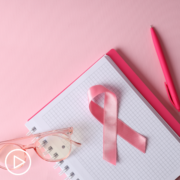
|
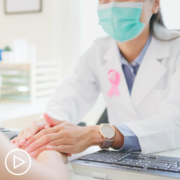
|
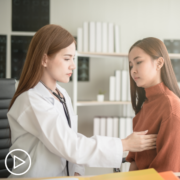
|
Transcript:
Katherine:
Dr. Ramaswamy, before we move on to answering questions from our breast cancer community, I’d like to touch upon the concept of shared decision-making. In your mind, what does that mean?
Dr. Ramaswamy:
So, it is a concept that has come more lately in our lives. Even as I started, we didn’t – not that we didn’t do it, we didn’t give it a name. And I think now giving it a name always helps because we always think about it and make sure we are doing it. I think the shared decision-making is important on two levels. Sometimes we do have treatment options that are very similar as far as outcomes, so.
It is important to understand what are the goals of the patient. Is it that even if it’s a 0.5 percent increasing their cure rate, is that their goal? Or really looking at the benefits versus the risks and versus side effects and trying to reduce the side effects and quality of life. So, I think this – those kinds of things, this will never be addressed if you don’t understand our patient and give them an opportunity to speak out what they want.
So, I think in – and this happens in every aspect of their journey, right? So, it is important even if they say sometimes they’ll talk about sexual side effects and we talk about it and we offer some clinics. And they might say, you know what? At this point, I think I know you’ve shared with me certain ways. Let me try it and then I’ll tell you when. So, everything is the shared decision-making because that’s when we have the highest sense of compliance and to feel a sense of feeling that they’re being heard, and we are in this together. And if we are not in this together, it is almost impossible to get the best outcomes both from quality of life and also survival. So –
Katherine:
Yeah.
Dr. Ramaswamy:
– that’s where the shared decision-making comes to. So, understanding the patient better and the patient understanding their outcomes better.


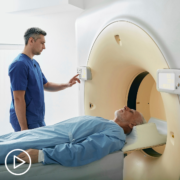

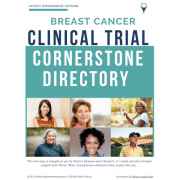

![[ACT]IVATED Program Logo [ACT]IVATED Program Logo](https://powerfulpatients.org/wp-content/uploads/Program-page-image-option-1-180x180.png)



